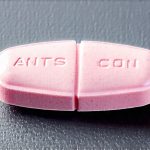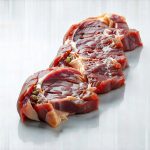Constipation is a surprisingly common digestive complaint, affecting people across all ages and demographics. While often associated with inadequate fiber intake, the reality is far more nuanced. Many individuals, seeking to proactively improve their gut health, turn to fiber supplements – psyllium husk, methylcellulose, wheat dextrin are just a few examples. However, an overreliance on these supplements can paradoxically lead to constipation, creating a frustrating and often uncomfortable cycle. This phenomenon is less about a lack of fiber, and more about how rapidly we introduce it, the type of fiber consumed, and crucially, insufficient water intake alongside supplementation. Understanding this complex interplay is essential for anyone considering or currently using fiber supplements as part of their wellness routine.
The digestive system is an incredibly sensitive ecosystem. It thrives on balance, gradual changes, and adequate hydration. Suddenly increasing fiber intake – whether through diet or supplements – can overwhelm the gut’s natural processes. Fiber’s role isn’t simply about “adding bulk” though that’s a common misconception. It impacts motility (the speed at which food moves through the digestive tract), fermentation by gut bacteria, and water absorption. When supplementation is excessive or poorly managed, these functions are disrupted, often resulting in hard, difficult-to-pass stools and associated discomfort. This article will delve into why fiber supplements can trigger constipation, how to mitigate this risk, and alternative strategies for maintaining healthy bowel movements.
The Paradox of Fiber: Why Supplements Can Backfire
The core issue isn’t necessarily fiber itself, but the speed at which it’s introduced and how well it’s integrated with other essential components like water. Many fiber supplements are highly absorbent – psyllium husk is a prime example. This means they draw water from the surrounding environment as they move through the digestive tract. If you don’t drink enough water alongside these supplements, they can actually steal moisture from your stool, making it harder and more difficult to pass. Imagine trying to push a dry sponge through a narrow space – that’s essentially what happens when fiber absorbs too much water from the colon.
Furthermore, different types of fiber behave differently in the body. There are two main categories: soluble and insoluble. Soluble fiber dissolves in water, forming a gel-like substance that can help regulate blood sugar and cholesterol levels. Insoluble fiber adds bulk to stool and helps move waste through the digestive system more quickly. While both are important, an imbalance – particularly excessive intake of insoluble fiber without adequate hydration – can contribute to constipation. Fiber supplements often contain a mix, but understanding the dominant type is crucial.
Finally, it’s worth noting that some individuals are simply more sensitive to rapid changes in dietary fiber than others. Those with pre-existing digestive conditions like Irritable Bowel Syndrome (IBS) may be particularly susceptible to constipation triggered by fiber supplements. It’s a matter of individual gut sensitivity and adapting any supplementation strategy accordingly. The key takeaway here is that fiber isn’t always the solution, and in some cases, it can actively worsen constipation.
Hydration: The Forgotten Partner in Digestive Health
Water is absolutely critical for proper digestion, and its role becomes even more significant when supplementing with fiber. As mentioned earlier, many fiber supplements are highly absorbent, requiring ample water intake to function correctly. Think of it like this: the fiber needs water to soften and bulk up the stool appropriately. Without enough water, you end up with a hard, compacted mass that’s difficult to eliminate. This is why increasing your fluid intake should always accompany any increase in fiber consumption, whether from diet or supplements.
Determining how much water is “enough” varies depending on individual factors like activity level, climate, and overall health. However, a general guideline is to aim for at least eight glasses (64 ounces) of water per day, and potentially more if you’re taking fiber supplements. Pay attention to your body’s signals – thirst is often a late indicator of dehydration. Regularly sipping on water throughout the day is much more effective than trying to chug large amounts all at once.
Beyond simply drinking enough water, consider what you’re drinking. Sugary drinks and caffeated beverages can actually have a dehydrating effect, counteracting the benefits of water intake. Opt for plain water, herbal teas, or infused water (water with added fruits or vegetables) to stay optimally hydrated. Prioritizing hydration is arguably even more important than increasing fiber intake when addressing constipation.
Addressing Constipation Triggered by Fiber Supplements
If you’re experiencing constipation after starting or increasing your fiber supplement dosage, here are some steps to take:
- Reduce the Dosage: This is often the first and most effective step. Gradually decrease the amount of fiber supplement you’re taking until bowel movements become more regular. Don’t stop abruptly; a gradual reduction minimizes further disruption.
- Increase Water Intake: Simultaneously with dosage reduction, significantly increase your water intake throughout the day. Monitor your urine color – pale yellow indicates good hydration, while dark yellow suggests dehydration.
- Evaluate Fiber Type: Consider switching to a different type of fiber supplement or focusing on increasing soluble fiber through dietary sources (oats, beans, fruits). This might alleviate symptoms if insoluble fiber is contributing to the problem.
If these steps don’t provide relief after several days, it’s important to consult with a healthcare professional. They can rule out other potential causes of constipation and offer personalized guidance based on your individual health status. Avoid self-treating for prolonged periods or relying solely on laxatives without addressing the underlying cause. Remember, constipation is often a symptom of an underlying issue, not a problem in itself.
Dietary Strategies for Natural Regularity
Focusing on whole foods rich in fiber – fruits, vegetables, whole grains, and legumes – is generally more effective and gentler than relying solely on supplements. These foods provide a wider range of nutrients and promote overall digestive health. Prioritize incorporating these into your daily diet:
- Fruits like apples, pears, berries, and prunes (prune juice can also be helpful).
- Vegetables such as broccoli, spinach, Brussels sprouts, and carrots.
- Whole grains like oats, quinoa, brown rice, and whole-wheat bread.
- Legumes including beans, lentils, and chickpeas.
Beyond simply eating fiber-rich foods, pay attention to how you prepare them. Cooking methods can affect their digestibility. Steaming or lightly sautéing vegetables preserves more nutrients and makes them easier to digest than frying or overcooking.
The Role of Movement & Gut Health
Don’t underestimate the importance of physical activity in maintaining regular bowel movements. Exercise stimulates intestinal contractions, helping to move waste through the digestive system more efficiently. Aim for at least 30 minutes of moderate-intensity exercise most days of the week. Even a simple walk can make a difference. Additionally, consider incorporating probiotic-rich foods like yogurt or kefir into your diet to support a healthy gut microbiome. A balanced gut microbiome is essential for optimal digestion and overall health. A holistic approach – combining dietary changes, hydration, exercise, and potentially probiotics – is often the most effective way to address constipation and promote long-term digestive well-being. Understanding how your gut reacts to things like antacids can also help you make informed choices about your health. Many people find their reflux symptoms change throughout the day, and this impacts digestion as well. It’s also important to consider if constipation could be linked to food intolerance or even travel constipation.


















